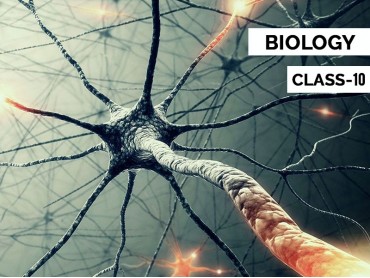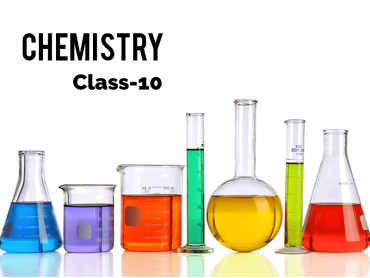Overview
Is science scary? No, science is actually fun under good guidance. Our tutors will help you get over your scare. Take the personalized Science for Class 10th Course, learn to love science and score more.
Session wise Curriculum
The Science course for class X home tuitions has been introduced keeping the NCERT and CBSE syllabus in mind. The Science home tutors teach it while going along with the school syllabus. Tentative session wise Science course curriculum for class X is as following:
Chemical Substances - Nature and Behaviour
- Chemical reactions: Chemical equation, Balanced chemical equation, implications of a balanced chemical equation, types of chemical reactions: combination, decomposition, displacement, double displacement, precipitation, neutralization, oxidation and reduction.
- Acids, bases and salts: Their definitions, General properties, examples and uses, concept of pH scale(Definition relating to logarithm not required), importance of pH in everyday life; preparation and uses of sodium hydroxide, Bleaching powder, Baking soda, Washing soda and Plaster of Paris.
- Metals and non metals: Properties of metals and non-metals, reactivity series, formation and properties of ionic compounds, basic metallurgical processes, corrosion and its prevention.
- Versatile nature of carbon: Homologous series Nomenclature of carbon compounds containing functional groups (halogens, alcohol, ketones, aldehydes, alkanes and alkynes), difference between saturated hydrocarbons and unsaturated hydrocarbons. Chemical properties of carbon compounds (combustion, oxidation, addition and substitution reaction). Ethanol and Ethanoic acid (only properties and uses), soaps and detergents.
- Periodic classification of elements: Need for classification, Modern periodic table, gradation in properties, valency, atomic number, metallic and non-metallic properties.
World of Living
- Life processes:"living being". Basic concept of nutrition, respiration, transport and excretion in plants and animals.
- Control and co-ordination in animals and plants: Tropic movements in plants; Introduction to plant hormones; control and co-ordination in animals: nervous system; voluntary, involuntary and reflex action, chemical co-ordination: animal hormones.
- Reproduction: Reproduction in animal and plants (asexual and sexual) reproductive health-need for and methods of family planning. safe sex vs HIV/AIDS. Child bearing and women's health.
- Heridity and evolution: Heredity; Mendel's contribution- Laws for inheritance of traits: Sex determination: brief introduction; Basic concepts of evolution.
Effects of Current
- Electric current, potential difference and electric current. Ohm's law; Resistance, Resistivity, Factors on which the resistance of a conductor depends. Series combination of resistors, parallel combination of resistors and its applications in daily life. Heating effect of electric current and its applications in daily life. Electric power, Inter relation between P, V, I and R.
- Magnetic effects of current: Magnetic field, field lines, field due to a current carrying conductor, field due to current carrying coil or solenoid; Force on current carrying conductor, Fleming's left hand rule. Electromagnetic induction. Induced potential difference, Induced current. Fleming's Right Hand Rule, Direct current. Alternating current : frequency of AC. Advantage of AC over DC. Domestic electric circuits.
- Reflection of light at curved surfaces, Images formed by spherical mirrors, centre of curvature, principal axis, principal focus, focal length, mirror formula (Derivation not required), magnification.
Refraction; laws of refraction, refractive index.
- Refraction of light by spherical lens, Image formed by spherical lenses, Lens formula (Derivation not required)
- Magnification. Power of a lens; Functioning of a lens in human eye, defects of vision and their corrections, applications of spherical mirrors and lenses.
- Refraction of light through a prism, dispersion of light, scattering of light, applications in daily life.
Natural Resources
- Sources of energy: Different forms of energy, conventional and non-conventional sources of energy: fossil fuels, solar energy; biogas; wind, water and tidal energy; nuclear energy. Renewable versus non-renewable sources.
- Management of natural resources. Conservation and judicious use of natural resources. Forest and wild life, coal and petroleum conservation. Examples of People's participation for conservation of natural resources.
- The Regional environment: Big dams : advantages and limitations; alternatives if any. Water harvesting. Sustainability of natural resources.
- Our environment: Eco-system, Environmental problems, Ozone depletion, waste production and their solutions. Biodegradable and non-biodegradable substances.
-
 Best Curated
Best Curated
Tutor for You -
 Guaranteed Refund within
Guaranteed Refund within
48 hours* -
 Chapterwise Practice
Chapterwise Practice
Questions




